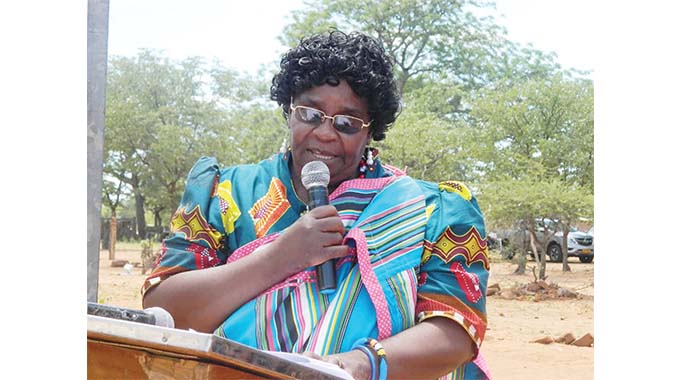Hypertension control

Blood pressure is determined both by the amount of blood your heart pumps and the amount of resistance to blood flow in your arteries. The more blood your heart pumps and the narrower your arteries, the higher your blood pressure.
A blood pressure reading is given in millimetres of mercury (mm Hg). It has two numbers.
– Top number (systolic pressure). The first, or upper number measures the pressure in your arteries when your heart beats.
– Bottom number (diastolic pressure). The second, or lower number measures the pressure in your arteries between beats.

Factors that cause increases in blood pressures include:
– There is thickening of part of the wall of the large vessels. These changes result in ability to accommodate large volumes of blood, which in turn leads to a more rigid blood vessels with increases in blood pressure.
– Resistance vessels (the small arteries and arterioles) show structural changes in hypertension with an increase in wall thickness and a reduction in the vessel lumen diameter. It is an increased peripheral resistance that maintains the elevated blood pressure even if the cardiac (heart) output is normal.
– Kidney changes: regardless of the high blood pressure eventually, changes in the kidney blood vessel system lead to a blood supply, leading to reduced waste clearing capability of the kidney and, finally, a reduction in sodium (salt) and water excretion.

– Brain changes in small vessel cause lacunae (small infarcts-dying from limited blood supply) and reversible neurological deficits. This may lead to dementia and stroke.
– One of the most dangerous things about high blood pressure is that you may not know you have it. That’s because high blood pressure doesn’t have any symptoms unless it’s very severe. The best way to know if your blood pressure is high is through regular check-ups. You can also monitor blood pressure at home. This is especially important if you have a close relative who has high blood pressure.
If your blood pressure is extremely high, there may be certain symptoms to look out for, including:
– Severe headaches
– Nosebleed
– Fatigue or confusion
– Vision problems
– Chest pain

Chest pain. Image taken from Narayana Health
– Difficulty breathing
– Irregular heartbeat
– Blood in the urine
– Pounding in your chest, neck, or ears
Uncontrolled high blood pressure can lead to complications including:
– Heart attack or stroke.
– Aneurysm. Increased blood pressure can cause your blood vessels to weaken and bulge, forming an aneurysm. If an aneurysm ruptures, it can be life-threatening.
– Heart failure — thickened muscle of the heart may have a hard time pumping enough blood to meet your body’s needs, which can lead to heart failure.
– Weakened and narrowed blood vessels in your kidneys. This can prevent these organs from functioning normally.
– Thickened, narrowed or torn blood vessels in the eyes. This can result in vision loss.
– Metabolic syndrome. This syndrome is a group of disorders of your body’s metabolism, including increased waist size, high cholesterol levels, high blood pressure and high insulin levels. These conditions make you more likely to develop diabetes, heart disease and stroke.
– Trouble with memory or understanding. Uncontrolled high blood pressure may also affect your ability to think, remember and learn.
– Dementia. Narrowed or blocked arteries can limit blood flow to the brain, leading to a certain type of dementia (vascular dementia). A stroke that interrupts blood flow to the brain also can cause vascular dementia.
How to prevent hypertension through lifestyle changes
– Try the Dietary Approaches to Stop Hypertension (DASH) diet, which emphasises fruits, vegetables, whole grains, poultry, fish and low-fat dairy foods. Get plenty of potassium, which can help prevent and control high blood pressure.

– Decrease the salt in your diet. While you can reduce the amount of salt you eat by putting down the saltshaker, you generally should also pay attention to the amount of salt that’s in the processed foods you eat.
– Maintain a healthy weight. Keeping a healthy weight, or losing weight if you’re overweight or obese, can help you control your high blood pressure and lower your risk of related health problems.
– Increase physical activity. Regular physical activity can help lower your blood pressure and manage stress. Try brisk walking, yoga, tai chi, swimming and aerobics.
– Limit alcohol. Even if you’re healthy, alcohol can raise your blood pressure. If you choose to drink alcohol, do so in moderation. For healthy adults, that means up to one drink a day for women, and up to two drinks a day for men.
– Don’t smoke. Tobacco can injure blood vessel walls and speed up the process of build-up of plaque in the arteries. If you smoke, ask your doctor to help you quit.
-Manage stress. Reduce stress as much as possible. Practice healthy coping techniques, such as muscle relaxation, deep breathing or mindfulness. Getting regular physical activity and plenty of sleep can help, too.
– Monitor your blood pressure at home. Home blood pressure monitoring allows you to keep a daily log of blood pressure measurements. Your doctor can review the information to determine if your medication is working or if you’re having complications. Home blood pressure monitoring isn’t a substitute for visits to your doctor. Even if you get normal readings, don’t stop or change your medications or alter your diet without talking to your doctor first.
– Practice relaxation or slow, deep breathing. Practice taking deep, slow breaths to help relax. Some research shows that slow, paced breathing (five to seven deep breaths per minute) combined with mindfulness techniques can reduce blood pressure.
According to the American Heart Association, device-guided breathing may be a reasonable non-drug option for lowering blood pressure, especially if you have anxiety with high blood pressure or can’t tolerate standard treatments well.
– Control blood pressure during pregnancy. Women with high blood pressure should discuss with their doctors how to control their blood pressure during pregnancy.
Till next week, stay safe.
Dr Tatenda Simango can be contacted on [email protected] or follow him on Facebook@ 9th Avenue Surgery.











Comments